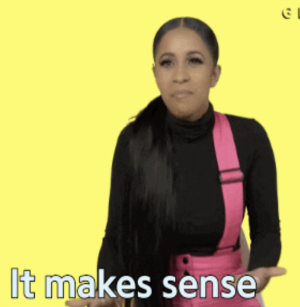10 Common Mistakes Non-Native English Research Authors Make
Navigating the world of academic writing as a non-native English speaker can sometimes be a trying experience. The internationality of research is rooted in English. A basic proficiency in the language is necessary, from collaborating with international colleagues to writing emails and case notes, but most importantly, for writing a research manuscript. Writing error-free English is critical when you’re trying to communicate with clarity.
In this article we discuss ten mistakes that, from my experience as an editor, non-native English author often make.
1. Incorrect Article Usage
Articles are words that usually precede a noun and combine with it to give it meaning. There are three of them – “a,” “an,” and “the” – and each is meant to be used in specific situations. “The” is used in instances when you’re trying to describe specific objects or entities that both, you and the recipient of the message, are familiar with or when describing something unique.
Do you want to discuss the results we received yesterday?
(Not just any results, but the ones received the day previously)
The Ganges. The Atlantic Ocean. The sun.
(All unique entities)
More common, is the confusion when using the articles “a” and “an” prior to words starting with vowels or silent letters.
It’s a beautiful day.
That was an interesting session.
It’s a hundred percent accurate.
It’s an honor to meet you.
2. Missing Prepositions
This happens most often with writers whose native language is a Romance language like French and Spanish, especially in instances wherein the preposition is built into their verb.
Explain me.
Ought to be “explain to me.” (In French, the preposition “to” is built into the verb “expliquer”)
I searched you.
Ought to be “I searched for you.” (Again, the preposition “for” is a part of the French verb “chercher”)
3. Apostrophe Misuse/Disuse
Using apostrophes incorrectly, or even omitting their use altogether when they’re required, can be quite common, even among native English speakers.
When pluralizing nouns
The video’s were uploaded on time.
The piano’s were delivered.
The apostrophe is unnecessary in both these cases.
When indicating contractions
Its a wonderful occasion – ought to be “it’s a wonderful occasion.”
Your pretty good at that – ought to be “you’re pretty good at that.”
When indicating possession
It was James decision – ought to be “it was James’ decision.”
4. Incorrect Verb Tense
Applying the right tense to verbs is often one of the trickiest things to get used to for non-native English writers, and can result in mistakes that can alter the meaning of a sentence.
They sought to secure an appointment with the manager by calling early.
They seek to secure an appointment with the manager by calling early.
In this case, with the sentence being considered in isolation, applying the wrong tense to one verb (“sought/seek”) significantly changes the impression a reader receives after reading it. In the first instance the reader would understand the action as having already been performed, while in the second instance they would assume the action is being performed as they read it, or that it will be performed in the near future.
5. Mixing up Homophones
Homophones are words that sound alike when spoken aloud but are actually different. Confusing one for the other while writing is a common mistake, especially if you aren’t used to communicating in English natively.
“Affect” vs “effect”
“Accessory” vs “accessary”
“Their” vs “there” vs “they’re”
6. Pluralizing Uncountable Nouns
There are certain nouns in the English language which do not have a plural conjugation, since they refer to people, places, animals, things, and ideas that can’t be counted individually.
Examples of countable nouns include – bottle (plural – bottles), car (cars), idea (ideas), etc.
Examples of uncountable nouns include – information, water, garbage, etc. When used in a sentence, these words don’t get altered, regardless of the quantity being attributed to them.
This young man possesses great intelligence.
There’s a lot of garbage strewn around the place.
7. Incorrect Adverb Placement
Adverbs are used to modify adjectives, verbs, other adverbs, or even whole sentences. When describing verbs, their correct placement is usually after the infinite form of the verb, to avoid split infinitives.
Correct – He eats enthusiastically.
Incorrect – He enthusiastically eats.
8. Improper Comma Usage
When working with commas, it’s very important to keep in mind the style of English being used. For the purposes of this blog, we’ll consider the two main ones – British and American.
A serial comma, an American convention, is added before the coordinating conjunction in a series of three or more words.
Harry, Adam, and Kyle were pretty much inseparable during college.
In British English, the comma before “and” would be left out.
Another rule, commonly forgotten, is the insertion of commas, which aren’t part of the quote, within quotation marks when writing in the American style.
“I really like your approach,” said Mark, “and I’d like to replicate it across our other projects.”
In British English, it would be written thus – ‘I really like your approach’, said Mark, ‘and I’d like to replicate it across our other projects.’
9. Confusing the Word Orders for Direct and Indirect Objects
In the event a prepositional phrase (indirect object) is being used in a sentence, it must always be positioned after the direct object.
Correct – Bill explained his reasoning to me.
Incorrect – Bill explained to me his reasoning.
As demonstrated, “to me,” the indirect object of the verb “explained” must be placed after “reasoning” (the direct object).
10. Poor Usage of Transition Words/Phrases
Transitions are used to connect words, phrases, or sentences to present a more coherent picture to the reader. Using the most apt transitions for a particular situation is something a lot of writers can struggle with if English isn’t their first language.
Poor – Some of the patrons had to wait for an hour. Also, no one attended to them in the meantime.
Better – Some of the patrons had to wait for an hour. Moreover, no one attended to them in the meantime.
Avoid using words like “and,” “but,” and “also” too often, since this can give your paper too informal or casual a look. There’s a wide variety of transition options available for different situations. Authors looking for guidance can find a lot of information available online.
Manuscript writing is a serious business and there’s a lot that hinges on a well-written paper. My best advice for academic authors out there would be to read up as much you can on language and grammar conventions and then practice, practice, and practice some more until you get it right. Learn more about manuscript writing, formatting, and publication success here.
Which of these 10 tips helped you out the most? Leave your comments, and suggestions below.














